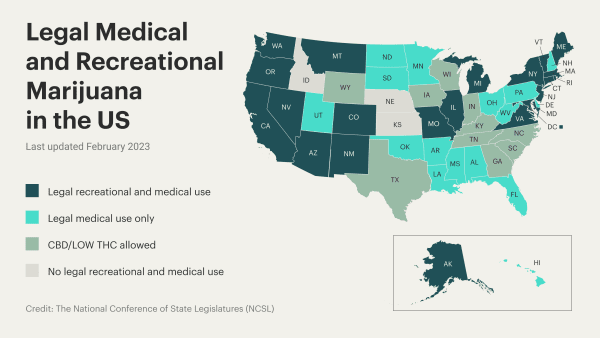While marijuana is still considered a schedule one narcotic by federal law, the national perception has obviously changed. In just a handful of years, most states have legalized marijuana for medical use and a few states allow recreational use as well. Understandably, this creates conflict in the common practice of pre-employment drug testing. Marijuana has always been one of the standard five panels of narcotics tested for. However, unlike a breathalyzer test used for “on the spot” alcohol detection, a urine drug test for marijuana has a detection window of one to several days, depending on the frequency of use. The job candidate may not be under the influence during the drug test or ever used marijuana while on the job. Or maybe they have. Current detection methods can’t reveal that specific information to a potential employer. So, is the detection of a substance that’s completely legal by state law, though not legal by federal law, grounds for rejection? Is the law even a factor or is it a matter of company policy? These are the topics of debate for employers and employee advocacy groups.
medical use and a few states allow recreational use as well. Understandably, this creates conflict in the common practice of pre-employment drug testing. Marijuana has always been one of the standard five panels of narcotics tested for. However, unlike a breathalyzer test used for “on the spot” alcohol detection, a urine drug test for marijuana has a detection window of one to several days, depending on the frequency of use. The job candidate may not be under the influence during the drug test or ever used marijuana while on the job. Or maybe they have. Current detection methods can’t reveal that specific information to a potential employer. So, is the detection of a substance that’s completely legal by state law, though not legal by federal law, grounds for rejection? Is the law even a factor or is it a matter of company policy? These are the topics of debate for employers and employee advocacy groups.
State and local lawmakers have taken action in some jurisdictions to protect employees where legalization has taken place. For example:
- Nevada passed a law in 2019 that prohibits employers from refusing to hire job applicants who test positive for marijuana on a pre-employment drug test.
- New York, which legalized recreational marijuana in 2021, has included provisions in its law that prohibit employers from discriminating against employees or job applicants based on their marijuana use, with some exceptions for safety-sensitive positions.
- Several states, including Arizona, Connecticut, and Rhode Island, have passed laws that prohibit employers from taking adverse employment actions against employees or job applicants based solely on their status as a medical marijuana user, with some exceptions for safety-sensitive positions.
- The cities of New York and Philadelphia flat-out prohibit pre-employment drug testing for marijuana.
So, where does this leave employers? Mostly in a state of confusion while trying to understand how to navigate new and evolving employment laws, safety concerns, insurance requirements, and company policies. It is important to note that the laws related to marijuana and employment vary widely by state and information sources found online are not always up to date. Employers should consult with legal counsel to ensure compliance with local regulations. The Society of Human Resource Management has put together a helpful summary of information including a map that indicates each state’s current standing.
